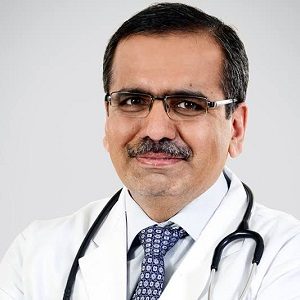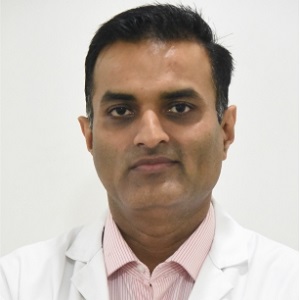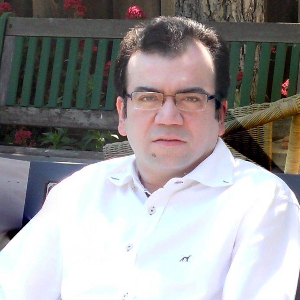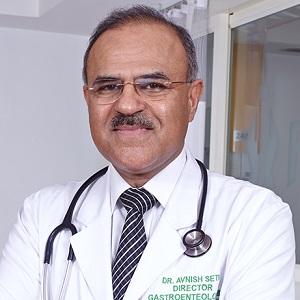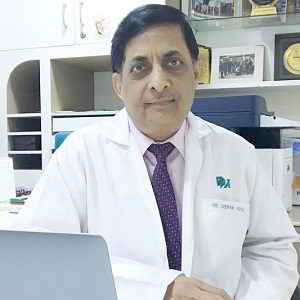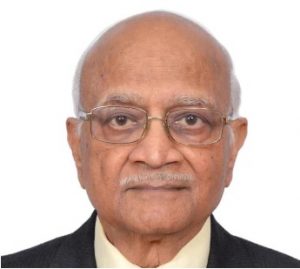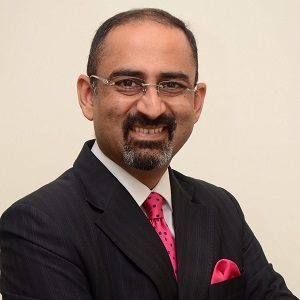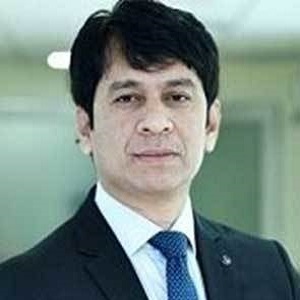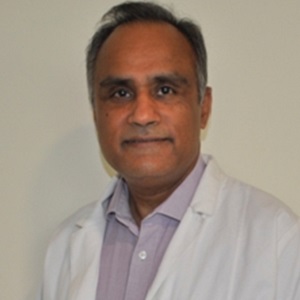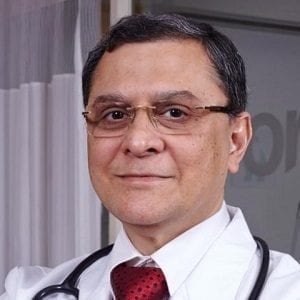Best Doctors in India for Liver Biopsy
- Medical Gastroenterologist and Hepatologist, New Delhi, India
- Over 30 years experience
Profile Highlights:
- Dr. Yogesh Batra is one of the best medical gastroenterologists in New Delhi, India.
- Dr. Batra specializes in therapeutic endoscopy (EUS, ERCP), hepatology, pancreatic disease, and inflammatory bowel disease (IBD). He has successfully performed a variety of diagnostic and therapeutic GI procedures on hundreds of patients throughout his career.
- Gastroenterologist, Gurugram, India
- Over 15 years’ experience
Profile Highlights:
- Dr. Pawan Rawal continued to work in PGIMER, Chandigarh after completing his DM for the next few years and gained proficiency in clinical Gastroenterology, Hepatology, and its application to patient care.
- He has performed several adults and pediatric upper G I endoscopies/ colonoscopies, ERCPs, capsule endoscopies, and push and double-balloon enteroscopy. Dr. Pawan Rawal is quite experienced in performing all kinds of therapeutic procedures.
- Liver Transplant Surgeon and HPB Surgeon, New Delhi, India
- Over 33 years’ experience
Profile Highlights:
- Dr. Subhash Gupta is one of the finest Gastrointestinal and Liver Transplant Surgeons in the country. He has garnered an outstanding reputation in the field of Biliary, pancreas, and liver transplantation.
- He has conducted over 300 Living Donor Liver Transplants in the year 2013 each lasting 10-16 hours long.
- Dr. Subhash Gupta is also known to pioneer the development of Living Donor Transplant or LDLT.
- Gastroenterologist, New Delhi, India
- Over 27 years’ experience
Profile Highlights:
- Dr. Avnish Kumar Seth is a well-renowned name in the field of gastroenterology. With fellowships in Liver transplant (Birmingham, UK) and Endoscopic ultrasound (South Carolina Alabama, USA), Dr. Avnish Seth’s areas of interest include treatment of hepatitis B, Hepatitis C, liver transplantation, and advanced GI endoscopic procedures.
- Dr. Avnish Kumar Seth has over two decades of experience in Gastroenterology Hepatobiliary Sciences. An expert in Diagnostic Therapeutic GI Endoscopy, Colonoscopy, ERCP, and Liver Transplantation.
- Surgical Gastroenterologist, New Delhi, India
- Over 29 years experience
Profile Highlights:
- Dr. Deepak Govil is one of the best Surgical Gastroenterologists in India, having over 29 years of experience in GI procedures. He has worked as a senior Gastro and laparoscopic surgeon at Indraprastha Apollo Hospitals.
- Dr. Govil, the founder of PSRI’s Department of GI Surgery, has done a lot of significant GI surgical interventions.
- He is well-known for having done liver transplants upon living donors. At Apollo Hospital, he has performed over 2000 surgeries that include the liver, gastrointestinal tract, and laparoscopic procedures.
- In addition to his fieldwork, Dr. Govil has taught at prestigious medical institutes in Delhi.
- Medical Gastroenterologist, New Delhi, India
- Over 45 years’ experience
Profile Highlights:
- Dr. D K Bhargava is a Medical Gastroenterologist working at Indraprastha Apollo Hospitals, New Delhi.
- He has 45 years of experience in his field.
- Dr. Bhargava was a Professor of Gastroenterology at the All India Institute of Medical Sciences, New Delhi formerly.
- Some of the services he provides are Colonoscopy, Gastroenteritis Treatment, Acidity Treatment, and Irritable Bowel Syndrome Treatment.
- Exceptionally qualified Dr. D K Bhargava has received the Padma Shri Award and Dr. B C Roy National Award from the President of India.
- He has published more than 150 articles, papers, and journals throughout his career.
- He is a member of the American Gastroenterological Association, Indian Society of Gastroenterology and American College of Gastroenterology.
- Pediatric Gastroenterologist, New Delhi, India
- Over 26 years’ experience
Profile Highlights:
- Dr. Anupam Sibal is one of the best Pediatric Gastroenterologists in Delhi, having nearly 26 years of experience in treating GI and liver disorders.
- He is a senior consultant for Pediatric Gastroenterology and Hepatology at Indraprastha Apollo Hospital, Delhi. Additionally, he is working as Group Medical Director of Apollo Hospitals.
- He has expertise in Congenital Disorders Evaluation & Treatment, Growth & Development Management, injuries in children, and complete Paediatric health checkups.
- Dr. Sibal went for International certifications and training to improvise.
- Dr. Sibal won many National and International Awards for his excellent work.
- Besides authoring 99 medical writing Dr. Sibal has written a bestselling book, “Is Your Child Ready to Face the World?” and edited/proofread a textbook on Gastroenterology & Hepatology.
- Liver Transplant Surgeon & HPB Surgeon, Gurugram, India
- Over 15 years’ experience
Profile Highlights:
- Dr. Giriraj Singh Bora is a liver transplant surgeon, who is known for being the founder member of the Liver Transplant Society of India.
- He is the first doctor to transplant a liver in Rajasthan. He is also known for carrying out the first deceased donor and the first living donor liver transplants in Rajasthan and has also been instrumental in starting a liver transplant program in the region.
- Gastroenterologist, New Delhi, India
- Over 20 years’ experience
Profile Highlights:
- Dr. Vivek Raj is a well-known Gastroenterologist with a clinical experience of 20 years in the field.
- His medical interests are managing ERCP, Liver Diseases, and Colonoscopy.
- He is a member of various renowned organizations.
- Gastroenterologist, Gurugram, India
- Over 30 years’ experience
Profile Highlights:
- Dr. Gourdas Choudhuri is a gastroenterologist, medical educator, researcher of national eminence, as well as a columnist and philanthropist.
- He completed his training at the All India Institute of Medical Sciences in New Delhi and was the first specialist to start Endoscopic Ultrasound (EUS) and Extra Corporeal Shockwave Biliary Lithotripsy (ESWL) in India.
- It was under Dr. Gourdas Choudhuri’s expert leadership and supervision the prestigious department of Gastroenterology at Sanjay Gandhi PostgraduateInstitute of Medical Sciences, Lucknow, developed into one of the top five in the country.
Best Hospitals in India for Liver Biopsy
Indraprastha Apollo Hospital, New Delhi
- City: New Delhi, India
Hospital Highlights:
- Indraprastha Apollo Hospital is a 700-bedded multispecialty hospital in the heart of the capital of India. It is a part of Apollo Hospital group, one of India’s most reputed healthcare chains. Indraprastha Apollo Hospital has been accredited by Joint Commission International, making it the first internationally accredited hospital in the country in 2005.
- There are 52 specialties in the hospital with one of the best cardiology centers in the country. The hospital is also equipped with State of the art infrastructure facilities with the largest Sleep Lab in Asia and the largest number of ICU bed facilities in India.
- The hospital also has one of the largest dialysis units in India along with a dedicated Bone Marrow Transplant unit.
- The latest and highly advanced technologies that are installed in the hospital include Da Vinci Robotic Surgery System, PET-MR, PET-CT, Cobalt-based HDR Brachytherapy, Brain Lab Navigation System, Tilting MRI, Portable CT scanner, 3 Tesla MRI, 128 Slice CT scanner, DSA Lab, Endosonography, Hyperbaric Chamber and Fibro scan.
Fortis Memorial Research Institute, Gurugram
- City: Gurugram, India
Hospital Highlights:
- Fortis Memorial Research Institute is a multi-super-specialty, quaternary care hospital with 1000 beds. The hospital comprises reputed clinicians, and international faculty and is also equipped with cutting-edge technology. The hospital is a part of Fortis Healthcare Limited, a reputed chain of private hospitals in India.
- It is a NABH-accredited hospital that is spread across 11 acres of land and has a capacity of 1000 beds. The hospital has 55 specialties and is one of the premier health care centers in the Asia Pacific region popularly known as “the Mecca of Healthcare”.
- The hospital has 260 diagnostic centers and is also equipped with the latest and advanced techniques that include 3 Telsa which is the world’s first Digital MRI technology. The hospital also has world-class Radiation Therapy techniques which have been developed by leading technology experts from Elekta and Brain Lab.
Apollo Hospital, Chennai
- City: Chennai, India
Hospital Highlights:
- Apollo Hospitals, Chennai, is one of the best hospitals for heart care in India. Over the years, Apollo has expanded all over India, as a healthcare chain.
- India’s first ‘Only Pancreas’ transplant was performed in Apollo Hospital. The hospital is known for successfully performing Asia’s first en-bloc combined heart and liver transplant, and over the years, it has attained a remarkable achievement in the global healthcare space. Around 3-4 organ transplants are performed in the hospital per day.
- Equipped with over 500 beds, this hospital in Chennai was established in 1983 and since then has been among the most preferred hospital for patients from all over the world.
- The hospital holds accreditation of the NABH and JCI and is the first hospital in India to be ISO 9001 and ISO 14001 certified. It is also the first South Indian Hospital to receive subsequent reaccreditation from the JCI USA 4 times.
Medanta-The Medicity, Gurgaon
- City: Gurugram, India
Hospital Highlights:
- One of India’s best and largest multi-specialty hospitals, Medanta was built with the aim to bring India to the highest standards of medical care. The hospital has been providing the best medical services to its patients, since its inception, with care, commitment, and compassion.
- Equipped with 1250 beds, the hospital was founded by Dr. Naresh Trehan in the year 2009 with an aim to provide the best medical care at affordable costs. The hospital is spread across 43 acres and includes 45 operation theatres and 350 beds dedicated solely to ICU. The hospital includes over 800 doctors, and more than 22 specialty departments and has a dedicated floor for individual specialty in order to offer the best services under one roof.
- The hospital is considered one of the premier institutes in India for Cardiac Care and includes staffs and members of high caliber. The hospital has 6 distinct centers of excellence.
Max Super Specialty Hospital, New Delhi
- City: New Delhi, India
Hospital Highlights:
- One of the well-regarded providers in India committed to the highest standards of clinical excellence and patient care, Max Super Specialty Hospital is a part of Max Healthcare, which is the second-largest healthcare chain in India. Regarded as one of the most well-regarded healthcare providers in the country, Max Super Specialty Hospital is committed to the highest standards of clinical excellence as well as patient care. The hospital is also equipped with the latest technology as well as cutting-edge research. The hospital is known to deliver and ensure the highest level of patient care.
- The hospital has more than 500 beds and offers treatment for over 35 specialties. The hospital also holds the credit of having installed the first Brain Suite in Asia. This is a highly advanced Neurosurgical machine that allows MRI to be taken while surgery is ongoing.
- Other advanced and latest technologies are also installed in the hospital such as the 1.5 Tesla MRI machine, 64 Slice CT Angiography, 4D ECHO, LINAC, and 3.5T MRI machine.
Artemis Hospital, Gurugram
- City: Gurugram, India
Hospital Highlights:
- One of the most well-known hospitals in the Delhi NCR, Artemis Hospital is the first hospital in Gurugram to get accredited by the Joint Commission International.
- With more than 40 specialties, the hospital has been designed to be one of the most technically advanced hospitals in the country, with the best medical and surgical health care. The hospital has eleven special and dedicated centers, for Heart, Cancer, Neurosciences, etc.
- The latest technologies in the hospital include Endovascular Hybrid Operating Suite and Flat panel Cath Labs for the cardiovascular department, 3 Tesla MRI, 16 slice PET CT, 64 Slice Cardiac CT Scan, HDR Brachytherapy, and highly advanced Image Guided Radiation Therapy techniques (LINAC) are installed in the hospital.
- The hospital has won several awards as well, since its inception.
BLK Max Super Specialty Hospital, New Delhi
- City: New Delhi, India
Hospital Highlights:
- Equipped with 650 beds, BLK Superspecialty Hospital is the largest stand-alone private sector hospital in Delhi.
- With over 1500 healthcare providers and 150 globally renowned super specialists, the hospital is one of Asia’s largest Bone Marrow Transplant Centres. The hospital is known for having some of the best cancer doctors in the country.
- The hospital is NABH and NABL accredited and was inaugurated by the first Prime Minister of India. Pt. Jawahar Lal Nehru.
Gleneagles Global Hospitals, Chennai
- City: Chennai, India
Hospital Highlights:
- Established in 1999, Gleneagles Global Hospital, Chennai, is one of the top healthcare facilities in Southern India. It is part of the Gleneagles Hospital Chain, which is the fourth largest healthcare chain in the country. The hospital specializes in multi-organ transplants of kidneys, liver, lungs, heart, etc.
- The hospital has an excellent infrastructure and state-of-the-art lab and equipment set-up. The hospital boasts cutting-edge technologies, a highly skilled team of doctors and surgeons, and trained support staff. Located in Perumbakam, Chennai, it is one of India’s premier health care destinations. The hospital has performed some of the most complex surgical and clinical procedures in India including multi-organ transplantations.
- The hospital’s lung transplantation program is one of the best in the country. The hospital is known for having performed India’s first single lung transplant and first minimal invasive lung transplant. It is also the only Indian hospital to be associated with King’s College Hospital, London, United Kingdom for liver transplantations.
Fortis Hospital, Mulund, Mumbai
- City: Mumbai, India
Hospital Highlights:
- Fortis Hospital in Mulund is a 315-bed multi-speciality tertiary care hospital with five JCI accreditations that offers a wide variety of diagnostic and therapeutic services. The Fortis Hospital in Mulund delivers patient-centred treatment with cutting-edge technology, highly skilled and experienced surgeons, and paramedical staff.
- This institution houses Maharashtra’s largest multi-organ transplant centre. It is also the first heart transplant centre in western India to conduct 100 or more consecutive heart transplants in under four years. It is the only hospital in the city to have multi-organ transplants and has handled the youngest patient for angioplasty. Fortis Hospital Mulund now boasts the first advanced surgical robot in central Mumbai.
- Cardiology and heart surgery, urology, nephrology, neurosciences, orthopaedics, digestive care, emergency and critical care, and maternity care are among the services provided by the hospital.
Kokilaben Dhirubhai Ambani Hospital, Mumbai
- City: Mumbai, India
Hospital Highlights:
- Kokilaben Dhirubhai Ambani Hospital, Named after the wife of Indian industrialist Dhirubhai Ambani, the founder of Reliance Industries, this is one of the top hospitals in Mumbai. This 750-bed multi-specialty hospital became operational in 2009. Known as one of India’s most advanced tertiary care facilities, the hospital is designed to raise India’s global standing as a healthcare hub, with an emphasis on excellence in clinical services.
- Kokilaben Dhirubhai Ambani Hospital uses Protocol and Care Pathway based treatment models to ensure the best outcomes for patients.
- The hospital represents a confluence of top-notch talent, cutting-edge technology, state-of-the-art infrastructure, and, most importantly commitment.
- The hospital also holds the accreditation of the NABH, NABL, CAP, and JCI.
- The hospital has been recognized as the No. 1 Multispecialty Hospital in Mumbai and the West Zone for the fifth year in a row in 2020 by The Week.
LIVER BIOPSY
Liver biopsy is a medical procedure in which a small amount of liver tissue is removed surgically, to analyze it in the laboratory for signs of damage or disease. A liver biopsy is recommended if blood tests or imaging tests suggest that you might be having a liver problem. This procedure can also help in determining the severity of your liver disease.
Purpose
A liver biopsy is usually done for one of the following reasons:
- To diagnose a liver problem which can’t be identified otherwise
- Obtaining a sample of tissue from an abnormality which was found in an imaging study
- Determining how severe the liver disease is
- Monitoring the liver after a transplant
- Helping develop efficient treatment plans based on the condition of the liver
- Determining how well the treatment for your liver disease is working
A liver biopsy may be recommended if you have:
- Abnormal liver test results without any explanation
- Ongoing, unexplained fevers
- A mass (tumor) or any other kind of abnormalities on your liver as seen on the imaging tests
A liver biopsy is also performed for diagnosis and staging certain liver diseases, including:
- Nonalcoholic fatty liver disease
- Autoimmune hepatitis
- Alcoholic liver disease
- Chronic hepatitis B or C
- Primary biliary cirrhosis
- Primary sclerosing cholangitis
- Wilson’s disease
- Hemochromatosis
Preparation
If you are pregnant or having a heart or lung condition, or are allergic to certain medications, you need to inform your doctor. If any blood tests are required, remember to get them done. It is important that you find out how long before the procedure you need to begin fasting. Arrange for a friend or family member as well, to ride you home after the procedure.
For the week before the procedure, you need to avoid aspirin or any products containing aspirin. Avoid all kinds of anti-inflammatory drugs as well such as ibuprofen and Advil, unless your doctor advises otherwise.
Procedure
A liver biopsy is usually done at the hospital or at an outpatient center. You need to arrive early in the morning. Your medical history will be reviewed by your healthcare team.
Before your biopsy, you will have an IV line placed into a vein in your arm, so that you can receive any kind of medications if or when needed. You might also be possibly be given a sedative in order to help you relax during the procedure.
Since you will need to remain in your bed for a few hours, use the toilet in advance if you need it.
There are different types of liver biopsy and the steps vary in each.
Percutaneous biopsy
Before beginning the procedure, your doctor will need to locate the liver by tapping on your abdomen or with the help of ultrasound images. Ultrasound might be used in certain situations during the biopsy so that the needle can be guided properly into your liver.
You will need to lay on your back and then position your right hand above your head on the table. A numbing medication will be applied to the area where the doctor will insert the needle. The doctor will next make a small incision near the bottom of your rib cage on the right side, after which he/she will be inserting the biopsy needle. The biopsy itself takes only a few seconds. You will need to hold your breath, as the needle passes in out and out of your liver.
Transjugular biopsy
You’ll need to lay on your back on an X-ray table. Your doctor will apply a numbing medication to one side of your neck, after which he/she will be making a small incision and then insert a flexible plastic tube into your jugular vein. The tube will be threaded down the jugular vein and then into the large vein in your liver (hepatic vein).
After this, your doctor will inject a contrast dye into the tube after which he/she will be making a series of X-ray images. The dye will show up on the images and allow your doctor to see the hepatic vein. Then a biopsy needle is threaded through the tube, after which one or more liver samples are removed. The catheter is removed carefully removed. The incision on your neck is wrapped with a bandage.
Laparoscopic biopsy
During a laparoscopic biopsy, you will most likely need general anesthetics. You will be positioned on your back on the operating table, and a small incision will be made by your doctor in your abdomen. Special tools will then be inserted through the incisions, which will include a tiny video camera for projecting images on a monitor in the operating room. The doctor will use the video images to guide the tools to your liver in order to remove samples of your tissue. After this, the tools will be removed and the incisions are closed with stitches.
After the Procedure
You will need to stay in a recovery room for up to 4 hours so that you can be observed. You might also experience slight pain or soreness at the biopsy site and dull pain in your shoulders or back. Pain medication can be prescribed if necessary.
Remember not to drive or operate machinery for at least eight hours after your procedure. Avoid taking aspirin or any products containing aspirin, or any kind of inflammatory drugs for at least one week after the procedure.
Avoid any kind of vigorous physical activity or heavy lifting for at least 24 hours for up to a week after the procedure. After some days, your doctor will be discussing the biopsy results with you.
Risks
Though a liver biopsy is a safe procedure when performed by an experienced doctor, there are few possible risks which can include:
- Pain- Pain at the biopsy site is known to be the most common complication after the procedure. However, it is just mild discomfort. If the pain makes you too uncomfortable, you might receive narcotic pain medication.
- Bleeding- Bleeding might also sometimes occur after a liver biopsy. If there is excessive bleeding, you might need to be hospitalized for a blood transfusion or surgery to stop the bleeding.
- Infection- In rare cases, bacteria might enter the abdominal cavity or bloodstream.
- Accidental injury to a nearby organ- In rare cases, the needle can also stick to another internal organ, such as the gallbladder or a lung, during the procedure.

